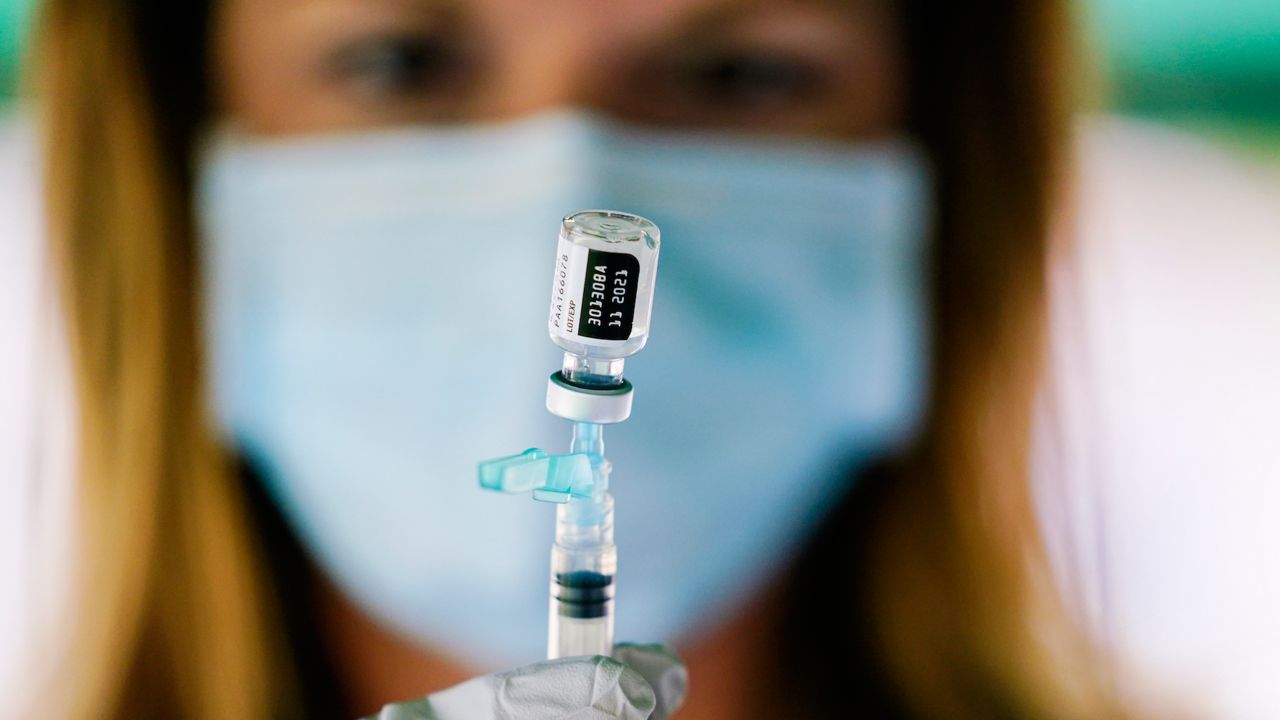Federal regulators last week cleared the way for more people to start getting coronavirus booster shots. Public health departments and doctors in North Carolina are rolling out third doses of Pfizer vaccines around the state this week.
About 69% of adults in North Carolina have gotten at least one shot of a coronavirus vaccine and 64% are fully vaccinated, according to the state Department of Health and Human Services.
As of now, the booster shots are for people with compromised immune systems, people 65 and older, and others at high risk from the coronavirus.
Why should people get a booster shot?
More than a year and a half into the pandemic, the coronavirus is still a big threat in North Carolina and around the country, public health officials say. The latest surge in cases, which began in August, has been fueled by the highly contagious delta variant.
“With the delta variant’s dominance as the circulating strain and cases of COVID-19 increasing significantly across the United States, a booster shot will help strengthen protection against severe disease,” the Centers for Disease Control and Prevention said in a statement last week, authorizing booster shots for more people.
“At CDC, we are tasked with analyzing complex, often imperfect data to make concrete recommendations that optimize health. In a pandemic, even with uncertainty, we must take actions that we anticipate will do the greatest good,’ CDC Director Dr. Rochelle Walensky said Friday.
In North Carolina, Dr. Mandy Cohen, secretary of DHHS, said the vaccines have proven to be safe and effective.
“A booster shot is meant to extend the benefits of the vaccine,” she said, speaking with reporters last week.
Booster shots for people with compromised immune systems
People with compromised immune systems, like cancer patients, who received either the Pfizer or Moderna vaccine, can get a booster shot.
According to the CDC, people eligible for third shots because of compromised immune systems include:
- “Active treatment for solid tumor and hematologic malignancies
- “Receipt of solid-organ transplant and taking immunosuppressive therapy
- “Receipt of chimeric antigen receptor (CAR)-T-cell or hematopoietic stem cell transplant (within 2 years of transplantation or taking immunosuppression therapy)
- “Moderate or severe primary immunodeficiency (e.g., DiGeorge syndrome, Wiskott-Aldrich syndrome)
- “Advanced or untreated HIV infection (people with HIV and CD4 cell counts <200/mm3, history of an AIDS-defining illness without immune reconstitution, or clinical manifestations of symptomatic HIV)”
The CDC has more details on who is considered immunocompromised here.
Who else can get a booster shot?
Federal regulators recently expanded who else can get a third shot. The CDC approved boosters for more people who got the Pfizer vaccine. People in this group who got the Moderna or Johnson & Johnson vaccine are not yet eligible for a booster shot.
The CDC approved third Pfizer shots for people who are:
- “65 years or older
- “Residents in long-term care
- “18 years or older with underlying medical conditions; or
- “18-64 years and work in high-risk settings like healthcare workers, teachers and childcare providers or food workers”
You cannot get the third Pfizer shot until at least 6 months after the second shot.
What if I got the Johnson & Johnson or Moderna vaccine?
Boosters are not yet available for people who got the two-dose Moderna vaccine or the single-shot Johnson & Johnson vaccine. The CDC has only so far considered boosters for the Pfizer vaccine.
“We will address, with the same sense of urgency, recommendations for the Moderna and J&J vaccines as soon as those data are available,” Walensky, the CDC director, said on Friday.
Where can I get a booster shot
People can get a third shot at public health departments, pharmacies and anywhere else offering the Pfizer vaccines.
You can find vaccination sites on the North Carolina DHHS website.
